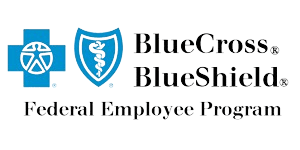When to See Your Primary Care Physician (PCP)
Your PCP is your go-to for preventive care, chronic condition management, and non-urgent health concerns. Regular visits to your PCP can help prevent ER visits by catching issues early.
Example: Managing high blood pressure, diabetes, or regular medication refills are best handled by your PCP. If you feel symptoms related to a chronic issue, like mild swelling or fatigue, contact your PCP.
When to Use UrgentCare2Go®
Urgent Care is designed for non-life-threatening issues that require attention within 24 hours but aren’t serious enough for the ER. This is where UrgentCare2Go® can help—by bringing expert care to your home for immediate needs without the ER wait.
Example: You’ve sprained your ankle, have a fever, or your child has an ear infection. UrgentCare2Go® providers will come directly to you, offering care, tests, and treatment on the spot, so you can start feeling better without the wait.
When to Go to the Emergency Room (ER)
The ER is intended for serious, life-threatening conditions that require immediate, specialized medical attention. Here are some examples of situations where you should go directly to the ER:
Severe Chest Pain or Shortness of Breath: If you’re experiencing intense chest pain, pressure, or shortness of breath, this could be a sign of a heart attack or other serious condition. Seek immediate care in the ER.
Stroke Symptoms: For sudden symptoms like numbness on one side of the body, confusion, difficulty speaking, or sudden vision loss, go directly to the ER. Quick treatment is crucial for stroke.
Heavy Bleeding: If you have an injury with significant blood loss that doesn’t stop with pressure, you need emergency care to control bleeding and prevent shock.
Severe Head Injury: After a serious fall or impact, if you experience confusion, loss of consciousness, or vomiting, head to the ER. These are possible signs of a concussion or more serious brain injury.
Serious Abdominal Pain: For sudden, severe abdominal pain, especially with fever, vomiting, or blood in stool, ER care is essential, as it may indicate appendicitis or other critical issues.
Severe Burns: For third-degree burns, chemical burns, or burns covering a large area, emergency treatment is needed to prevent complications and ensure proper care.
Severe Allergic Reactions (Anaphylaxis): For signs of a severe allergic reaction, such as difficulty breathing, swelling of the throat or tongue, or fainting, go to the ER immediately.
Broken Bones with Visible Deformity: If you suspect a bone fracture and there’s a visible deformity or the bone is protruding, you’ll need immediate, specialized care in the ER.
Poisoning or Drug Overdose: In the event of poisoning or a drug overdose, seek emergency help for prompt treatment to prevent life-threatening complications.
Severe Psychiatric Symptoms: For sudden, severe psychiatric symptoms that involve risk to personal safety or others, such as suicidal thoughts or hallucinations, the ER is equipped to provide immediate crisis support and evaluation.
These scenarios require the advanced resources of an ER to ensure your safety and proper treatment. For less critical conditions, consider UrgentCare2Go® for convenient, at-home urgent care services, saving time and avoiding the ER when possible.
Example: For severe chest pain, difficulty breathing, heavy bleeding, or a serious head injury, go directly to the ER. The ER is equipped to handle critical conditions that require emergency response teams.
We Accept All Major Insurances
At UrgentCare2Go®, we accept most major insurance plans including Medicare and Texas Medicaid using our billing company DK Physicians PLLC.
The Benefits of Choosing UrgentCare2Go
With UrgentCare2Go®, you get fast, expert care without leaving your home. Here’s why more patients are choosing us to stay out of the ER:
- Convenient, At-Home Care
No need to drive, wait, or expose yourself to other illnesses in the ER - Covered by El Paso Health
Most major insurance plans, including El Paso Health, are accepted, meaning you get the care you need without worrying about costs - Cost Savings
Avoid unnecessary ER fees and only pay the urgent care rate - Comprehensive Care Options
We offer diagnostics, medications, IV therapies, X-rays, and lab tests—all in the comfort of your home - Fast and Responsive
We come to you as soon as you need us, available for same-day or next-day appointments

UrgentCare2Go
Quality At-Home Care When You Need It Most
Skip the ER wait and get the care you need, right at home. Whether you’re dealing with an infection, mild injury, or uncomfortable symptoms, UrgentCare2Go® is here to help you feel better—conveniently and quickly. Schedule with us today!

















